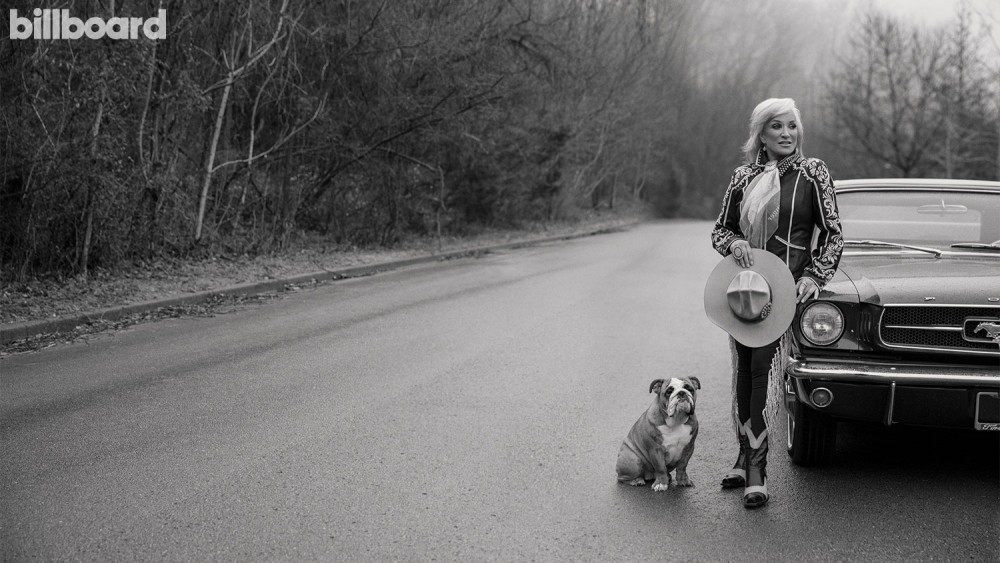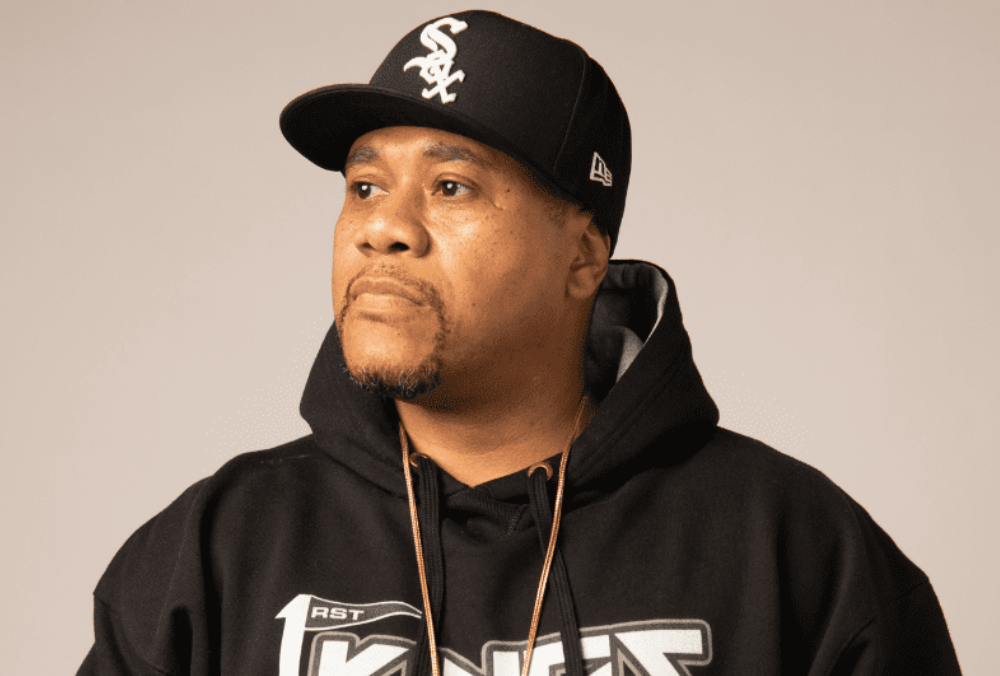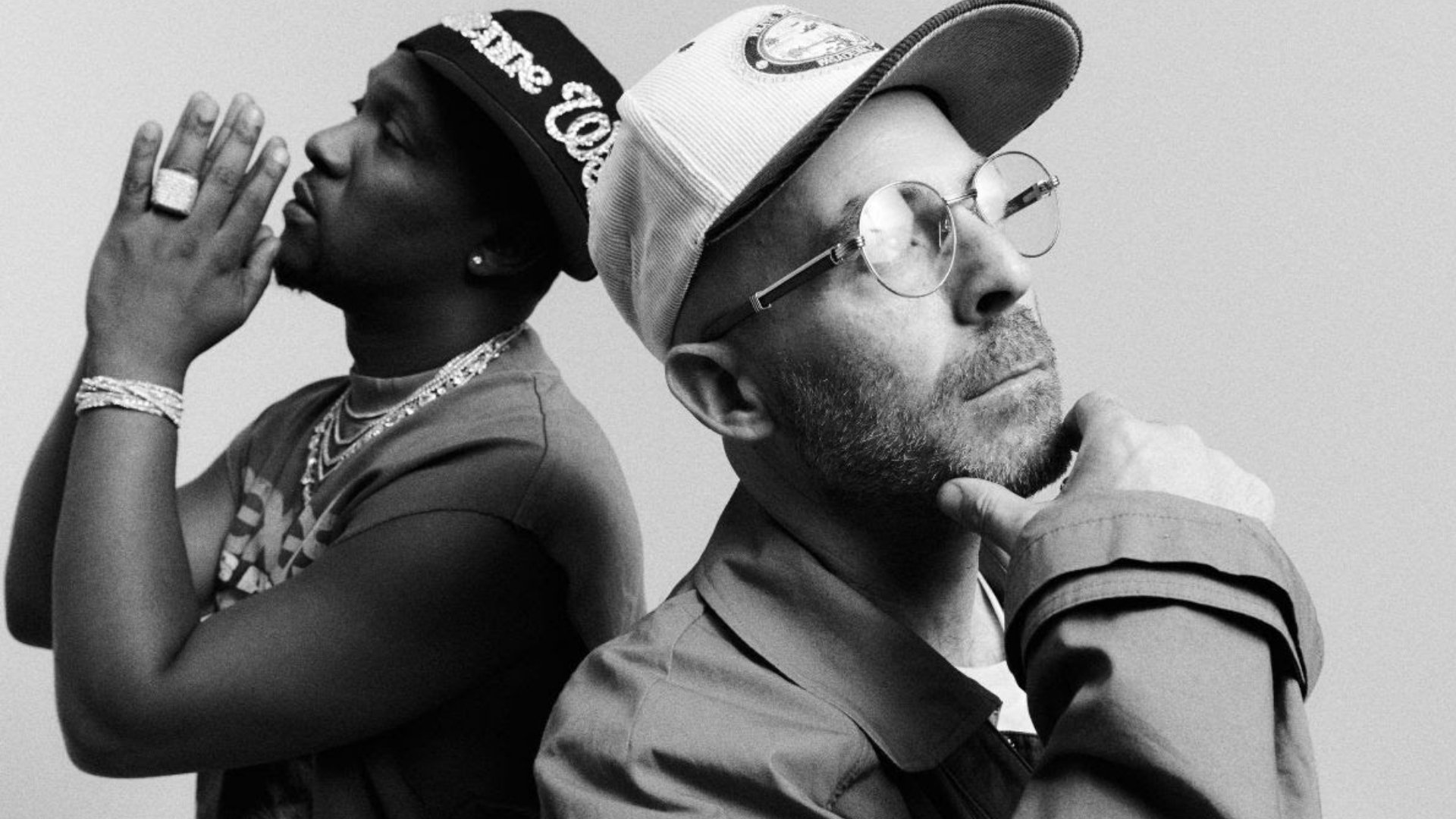Nearly 50 years after her first Grammy nomination, country renegade Tanya Tucker is enjoying a career renaissance — and a chance at the icon status her admirers say she has been denied too long.
Tanya Tucker is dancing around her West Nashville home to her own music, an American Spirit cigarette in one hand and her 20-year-old daughter Layla’s shoulder in the other. A few minutes ago, Tucker introduced the song playing as her “masterpiece.” She fetched a small speaker and pulled her youngest child into a modified waltz as the tune played around the kitchen — the only corner of her new house that feels particularly lived in. According to her 28-year-old son, Grayson, who also drifts in and out on this rainy December afternoon, hanging out around the counter like this is her favorite thing to do. Well, next to singing and watching horse racing. (Just don’t offer her a mint julep: Tucker’s a tequila girl, all the way.)
The song she’s playing is an unreleased one, though technically it’s not new: She wrote it several years ago with Layla’s father, songwriter-producer Jerry Laseter, and it features Willie Nelson, Merle Haggard and George Jones. It’s called “One of the Boys,” and Tucker says it’s her anthem. Full of swing and steel guitar, the track is classic country music, pure and simple.
“I’m a little misunderstood,” Tucker sings along as it hits the bridge. “They say I’m too bad for my own damn good.” And when the late Haggard and Jones parts kick in, she glances over at me mischievously, giving Layla a little dip. Only Tanya Tucker could collect vocals from the genre’s greatest and save them all for a rainy day.
“I think the world needs to hear that song, whether it’s while I’m living or not,” she says in that unmistakable husky drawl, sitting back at the kitchen counter and tapping out her cigarette. She’s dressed casually — silky gray top, black pants, furry slippers — though a pair of dangly turquoise earrings pop next to her freshly pink-tipped hair. “I’d prefer while I’m living, but you never can tell.”
While I’m Livin’ is also the title of Tucker’s most recent album, a record that catapulted her back into public consciousness after a 10-year gap between studio albums and gave her a complete career renaissance at 61 with four Grammy nominations, including one for song of the year. Produced by Shooter Jennings and Brandi Carlile — a Grammys success story herself following 2018’s widely acclaimed By the Way, I Forgive You — While I’m Livin’ is a thoroughly modern reintroduction to one of the genre’s greatest voices who, for far too long, was dismissed as “washed up” by an industry that elevates male stars into legends as they age while diminishing women for the same reason. But nearly 50 years after she released her breakthrough single, 1972’s “Delta Dawn,” Tucker is more interested in writing her next chapter than throwing in the towel.
And here, surrounded by her kids and music, is Tucker as she likes it: a matriarch on her own terms at home (a mother of three, she never married) and a matriarch to the genre, even if she hasn’t always been acknowledged as such. “Tanya Tucker had a major influence on me growing up,” says Margo Price, another artist who gets labeled as an outlaw for simply forging her own path through the industry. “I was drawn to her songs and her vocal delivery. Whenever I describe Tanya, I use the term ‘live wire’ because she just radiates this energy. She always has and always will.”
Yet the very things that artists like Price and Carlile celebrate about Tucker — her grit, her penchant for rock’n’roll shimmy, her refusal to play by the rules — often have taken a back seat to whatever vague “bad girl” image she carried as a result of a cocaine addiction, subsequent rehab and some years of partying back when her career took her to Hollywood in the late ’70s. It all served as an easy way for risk-averse Nashville to steer clear of her, and it made her a juicy target for the press. A 1988 People article that touched on her struggles noted that she “has had more boyfriends than some people have had hot meals.” In 2017, the Orange County Register referred to her in a headline only as “Glen Campbell’s former fling” and assumed she was retired.
It’s perhaps because of narratives like those that the Seminole, Texas-born Tucker has yet to be inducted into the Country Music Hall of Fame, an honor bestowed upon peers like Garth Brooks (even though Tucker already had released 15 albums by the time he put out his debut) and Brooks & Dunn (who have fewer entries on Billboard’s Hot Country Songs chart) or even Campbell himself (who dealt with the same addiction struggles but whose reputation never quite suffered in the same way). “This record is important because it has caused us to ask ourselves why we let Tanya go in the first place,” says Carlile. “Are we willing to hold her in the same high regard that we do her male counterparts? If not, how come?”
Tucker is used to both the lulls and the fits of activity, having reinvented herself more like Madonna than a country star through childhood fame, a rock album (1978’s TNT) and a poppier phase in the ’80s. The day before we met, she sang the national anthem at a Tennessee Titans football game — fun, but not really a big deal when you’ve played the Super Bowl halftime show, as she did in 1994 while rocking a black leather suit, a choker and Pat Benatar hair.
That gig is just one notch in a career of many sweeping achievements. Since she began performing at age 9, she has released 25 studio albums, enjoyed 40 top 10 hits on Hot Country Songs, starred in her own reality show (Tuckerville, which ran on TLC from 2005 to 2006) and been nominated for 14 Grammy Awards. One thing that has evaded her, though, is an actual Grammy. She was nominated for the first time in 1973, for “Delta Dawn,” and remembers thinking in 2004, when June Carter Cash won posthumously for Wildwood Flower, that maybe she would have to be dead before she could take one home herself. “I said then, ‘If that’s what you have to do to get the award, I don’t want one,’ ” she says, laughing. “Brandi said the good news was that all the people I said that to are probably dead.”
Tucker and her team were hopeful that While I’m Livin’ would receive some recognition from the Recording Academy, but they didn’t expect four nominations — and they certainly didn’t expect the gorgeous piano ballad “Bring My Flowers Now” to wind up a contender for song of the year alongside Billie Eilish and Taylor Swift. Like “One of the Boys,” the song she plays me in her kitchen, “Bring My Flowers Now” is another tune that has been a long time coming: Tucker, who has mostly sang material written by other people throughout her career, first mentioned an idea for the chorus to Loretta Lynn back in the ’70s, and Carlile — alongside her bandmates, twins Tim and Phil Hanseroth — helped give it life.
“I’ve done some great songs,” says Tucker. “But I feel like I’ve really done something with ‘Flowers.’ Being able to finish that song was a weight off my shoulders. And I remember my dad saying years ago that one of the best songs I’m ever going to have is one I wrote myself. I thought, ‘OK, he’s still coming through.’ ”
I tell her I teared up the first time I heard it because the message — about recognizing what (and who) matters most before it’s too late — struck hard. “Oh goodness, you gave me chills,” she says. A second later, that tenderness turns to toughness. “Don’t get me crying,” she orders. “You’ll ruin my bad reputation.”
It’s hard to trace the exact moment that Tanya Tucker earned her reputation, fair or not, as the bad girl of country. It could have been when she posed for the cover of TNT with a microphone cord between her legs. Or in the ’80s, when she started dating Campbell, many years her senior, and endured more than her fair share of tabloid scrutiny. Or maybe it was even earlier than that, when she made it clear that she liked the fun parts of music — the liquor, the leather, the libido — not just the chaste ones, though not more or less than any other major male star in the ’70s and ’80s. Tucker just thought she was being “one of the boys” — not because she didn’t relate to women, but because the roles and room offered to female artists in country weren’t in line with the way she wanted to come across onstage or in her music. She slithered like Mick Jagger, swiveled like her hero Elvis Presley and did splits onstage. (She still does, actually.)
But while the Merles and Waylons became heroes through jail time, addiction and redemption, country music often chastises — sometimes permanently — women who transgress or express themselves sexually: consider LeAnn Rimes, the Dixie Chicks, Gretchen Wilson. “The reason she didn’t get the same attention as the ‘outlaws’ was because she was a woman,” Margi Cheske, president of Tucker’s label, Fantasy Records, says without hesitation. “Any of the guys who did the things she did would get a fist bump.”
Tucker laughs (and sings) about it now, but that “bad girl” dismissal was part of the reason her career stayed stuck for so long. Prior to While I’m Livin’, which became her highest-charting studio album on the Billboard 200 since 1992, it had been 17 years since she had released an album of original material. (2009’s My Turn was a covers project.) During a January performance at Nashville’s famed Ryman Auditorium, she spoke candidly about her struggle to even get a record deal in the later stage of her career. As many of her peers benefited from entering that silver “legend” phase, Tucker, still a good bit younger than Nelson and Dolly Parton, was just an aging woman lost in the middle.
There’s a perfect poetic justice in Jennings, son of country legends Jessi Colter and the late Waylon Jennings, taking the lead in reprogramming that narrative: If anyone knows outlaws, it’s him. “We had both grown up in the same world,” says Jennings. “My dad loved Tanya. My mama loves Tanya. So there is a natural connection there. I just saw this unbelievable singer and talent who didn’t have an album out there, and I felt she was way overdue.”
Jennings was working with Carlile on By the Way, I Forgive You, and, upon discovering how much of a Tucker fan she was, recruited her to co-produce what would become While I’m Livin’. “We could have gone in and just cut a handful of ‘outlaw country’-style songs and made a fine album,” he says. “But I like connecting people. And bringing Brandi in was the perfect ingredient to add to that cauldron.”
Tucker wasn’t so sure at first — “I was just ‘that Brandi bitch,’ ” says Carlile — but a night drinking with Jennings convinced her. Once they got to work, it was an instant connection. “There wasn’t one thing I didn’t like about either of them,” says Tucker. “We were in the studio for three weeks, and it was just an incredible experience. I kind of just let go.”
Tucker was particularly impressed with how Carlile and the Hanseroths wrote songs that felt “custom made” to her life story. Prior to entering the studio, Carlile had sought advice about working with a country legend from Rick Rubin, who famously helped revitalize Johnny Cash’s career as the producer of his acclaimed American album series. “Rubin] said that it’s all about the lyrics,” recalls Carlile. “Reilluminating a national treasure like Tanya is all about giving her strong and important words to sing.”
Since then, Carlile has made advocating for Tucker a life mission. Despite an immensely busy schedule after last year’s Grammy wins, she has been active in every step of making and releasing While I’m Livin’, even shopping prospective record labels. “I needed to know that the label signing Tanya understood who she is in this world and what this moment represented,” says Carlile. “Margi had me convinced when she said this album would be a ‘cultural event.’ ” At a time when women are grossly underrepresented on country radio, that means turning the genre’s attention back to the women who built it — and reevaluating why we discounted some but not others.
Carlile calls Tucker an “accidental and unwilling feminist,” one who neglects to use the F-word but simply leads by example and is committed to uplifting the next generation: Her management team is almost entirely women, and she’ll take artists like Aubrie Sellers and Brandy Clark on the road with her as she headlines the CMT Next Women of Country Tour, which starts in February and hits mostly theaters. “It’s in the way she moves her hips, the way she sings, the way she raised her kids and never got married,” says Carlile. “She kicked drugs, she rides cutting horses in rodeos. If feminism by definition is the belief that a woman can and should be able to do anything a man can do, then Tanya’s a raging feminist. But she’ll deny it.”
It’s why The Highwomen — Carlile’s supergroup with Natalie Hemby, Maren Morris and Amanda Shires — cast Tucker in the star-studded video for “Redesigning Women,” where she drives a truck pulling some of country’s brightest female talent: They wouldn’t be here without her.
"I need a sharp knife!” yells Tucker across the kitchen, looking puzzled at an egg and piece of toasted baguette in a takeout box that seems impossible to conquer whole. “Grayson, baby, can you cut this up? You are strong and mighty.” Grayson shuffles around the kitchen opening drawers before pulling out something more akin to a butter knife, which prompts Tucker to cackle and give some knowing-mom side eye. “You’re going to need a sharper knife, baby,” she adds before turning to me. “You see how things go around here? I might starve to death first.”
Tucker makes a lot of jokes about how her time is short, but this comes less from age and more from how she thought about quitting recording altogether once her parents had both died (father Beau in 2006 and mother Juanita in 2012). She told Carlile, “ ‘When they died, I just figured there was a lot more love behind me than ahead of me,’ ” Carlile recalls her saying. “My hope is that she doesn’t believe that anymore. Even if some of us forgot, we’ve always loved her.”
If phase one of Tucker’s career renaissance was reigniting the fandom in those who cherished her all along, phase two is about putting her up on the same cultural icon pedestal as Cash, Nelson and Parton. “I met someone who told me they were a huge Dolly Parton and Garth Brooks fan,” says Cheske. “But she said she didn’t know Tanya Tucker. How does that happen? There is still a lot of education to do.”
The education will continue with more music. In addition to “One of the Boys,” Tucker already has a handful of songs ready to go — two albums’ worth, actually, including a project she plans to call Messes. There’s one tune in the can with David Allan Coe (“It’s fucking phenomenal — so me, so him,” she says), one with Colter (a version of Colter’s hit “Storms Never Last,” with a previously unheard verse), something called “Little Miss Dynamite” with fellow ex-child star Brenda Lee and a project with Johnny Rodriguez. “It’s just the beginning,” says Cheske.
Tucker, done with her breakfast-as-late-lunch at 5 p.m., decides to play me another song called “On My Way to Heaven,” which was written by Dennis Quaid — yes, that Dennis Quaid, who is also a musician and has become a close friend and collaborator — and features vocals from her old bud Kris Kristofferson. She’s already thinking about what she wants to do for the music video — maybe she’ll go to Hawaii and shoot it in a jail cell.
“I’m on my way to heaven, so I can’t be staying long,” she sings through the speaker, her voice melting alongside Kristofferson’s. Tucker squeals and pumps her arm like she just won an Olympic sprint, repeating a line a cappella: “I’m on my way to heaven, would you like to come along?” Tucker, a Grammy hopeful who’s writing some of the best music of her career and still does splits better than a teenager, has an answer to that. “No damn way!” she says with a shimmy, her turquoise earrings swaying. “Not right now!”
This article originally appeared in the Jan. 25, 2020 issue of Billboard.




